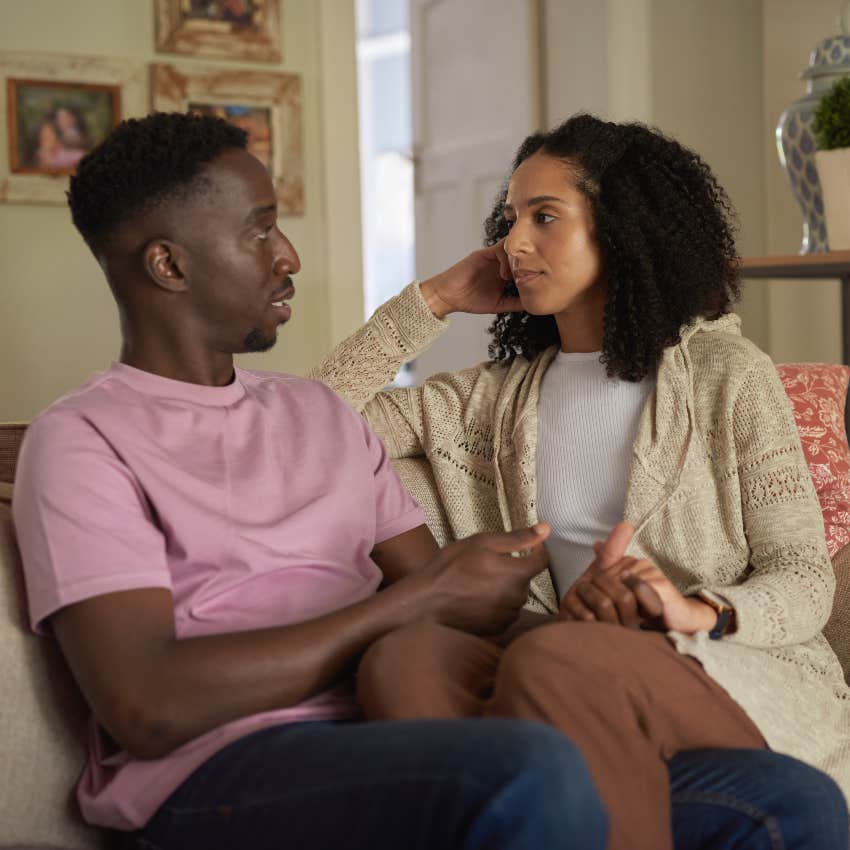Oops! I Married Two Husbands ... And One Of Them Is A Major Jerk
Turns out, my husband also married two wives.
 Roman Samborskyi | Shutterstock, SanneBerg | Canva
Roman Samborskyi | Shutterstock, SanneBerg | Canva One of my husbands is sweet, funny, warm, and makes me feel safe. The other is cranky, distracted, obsessive, and makes me feel vulnerable. The rub? They are both the same person! On different days, weeks, or hours, one part prevails, and at times, the other. And it turns out that my husband is married to two wives! One is sweet, funny, affectionate, and makes him feel loved and accepted — the other is critical, neurotic, demanding, and makes him feel judged.
How can this be? Are we suffering from mental illness or personality disorders? Actually, we're not. We just have different aspects of ourselves that take over at different times, evoking reactions from each other in the process.
My husband, who has a great sense of humor and patience with my foibles, used to call this phenomenon "husband, or not husband?" when we were contemplating engagement. He could tell from the way I was gazing at him whether I was flooded with warmth and happily thinking, "Husband!" or whether I was tense and judgmental, having worried thoughts of "Not husband!"
I used to think that my vacillations were reflections of the discontinuities in my husband's character. I now see them as equally reflective of the discontinuities in my own. When I feel secure, confident, and loving, his moods don't destabilize me. I don't wander down the mental path of "He can't meet my needs," "What's wrong with him?" or "Did I make a mistake?" Likewise, when he feels centered, he can greet my insecurities with comfort and humor.
 mavo / Shutterstock
mavo / Shutterstock
The deadly dynamic occurs when he is cranky, and I'm blended with the part of myself that gets insecure and judgmental. I can temporarily forget the good feelings we have together most of the time, and tell myself a negative narrative about our relationship. I react with impatience or withdrawal. He in turn gets frustrated and sarcastic. The good news is that this pattern has become so familiar to us during our over twenty years of marriage that we don't go too deeply into it without recognizing it. Neither of us likes it, and we are motivated to find our way out.
We know from experience that our moods aren't permanent and that we will shift back into a pleasant and positive connection eventually. We can sometimes use humor to defuse the tension, and when we can't and wind up arguing, one of us will approach the other later to restore the connection. Sometimes we have to hash out an issue before the air is cleared. Other times, our emotions need to simmer down before we can repair them. It helps to have words ("Part of me was feeling 'not-husband' right then. But I don't feel that way anymore. I'm sorry that I hurt your feelings.")
One of the biggest gifts my husband has given me over the course of our marriage has been the freedom to express when I feel frustrated or doubtful about our relationship without him becoming angry or insecure. I find that my frustrations and doubts melt away pretty fast when they can be acknowledged and not regarded as too dangerous to name. I also find that the more I can become aware of my own internal dialogue and feelings, the less they take over, and the freer I am to accept my spouse on his own terms.
As a couples therapist, I have the privilege of helping my clients get to know their own multiple selves, as well as those of their partners, which has the effect of opening up more space for each of them to be fully themselves. They can often learn to hear and witness each other while staying connected to their own feelings of love and confidence. In this way, couples can better navigate their own deadly dynamics when they arise, and build deeper intimacy and connection with each other in the process.
Patricia Rich is a therapist, educator, consultant, and founder of the Relating Well Center, LLC.
